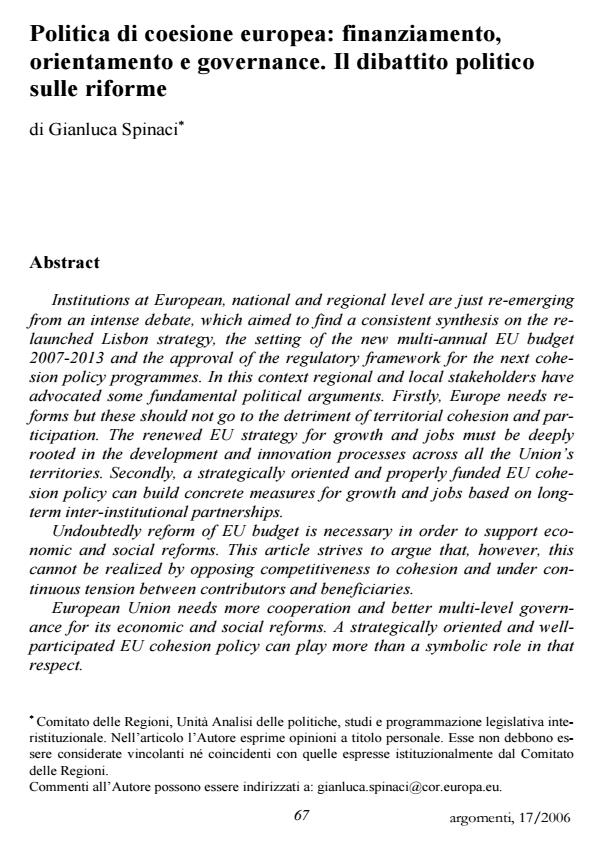Politica di coesione europea: finanziamento, orientamento e governance. Il dibattito politico sulle riforme
Journal title ARGOMENTI
Author/s Gianluca Spinaci
Publishing Year 2006 Issue 2006/17
Language Italian Pages 24 P. File size 359 KB
DOI
DOI is like a bar code for intellectual property: to have more infomation
click here
Below, you can see the article first page
If you want to buy this article in PDF format, you can do it, following the instructions to buy download credits

FrancoAngeli is member of Publishers International Linking Association, Inc (PILA), a not-for-profit association which run the CrossRef service enabling links to and from online scholarly content.
Institutions at European, national and regional level are just re-emerging from an intense debate, which aimed to find a consistent synthesis on the re-launched Lisbon strategy, the setting of the new multi-annual EU budget 2007-2013 and the approval of the regulatory framework for the next cohesion policy programmes. In this context regional and local stakeholders have advocated some fundamental political arguments. Firstly, Europe needs reforms but these should not go to the detriment of territorial cohesion and participation. The renewed EU strategy for growth and jobs must be deeply rooted in the development and innovation processes across all the Union’s territories. Secondly, a strategically oriented and properly funded EU cohesion policy can build concrete measures for growth and jobs based on long-term inter-institutional partnerships. Undoubtedly reform of EU budget is necessary in order to support economic and social reforms. This article strives to argue that, however, this cannot be realized by opposing competitiveness to cohesion and under continuous tension between contributors and beneficiaries. European Union needs more cooperation and better multi-level governance for its economic and social reforms. A strategically oriented and well-participated EU cohesion policy can play more than a symbolic role in that respect.
Gianluca Spinaci, Politica di coesione europea: finanziamento, orientamento e governance. Il dibattito politico sulle riforme in "ARGOMENTI" 17/2006, pp , DOI: